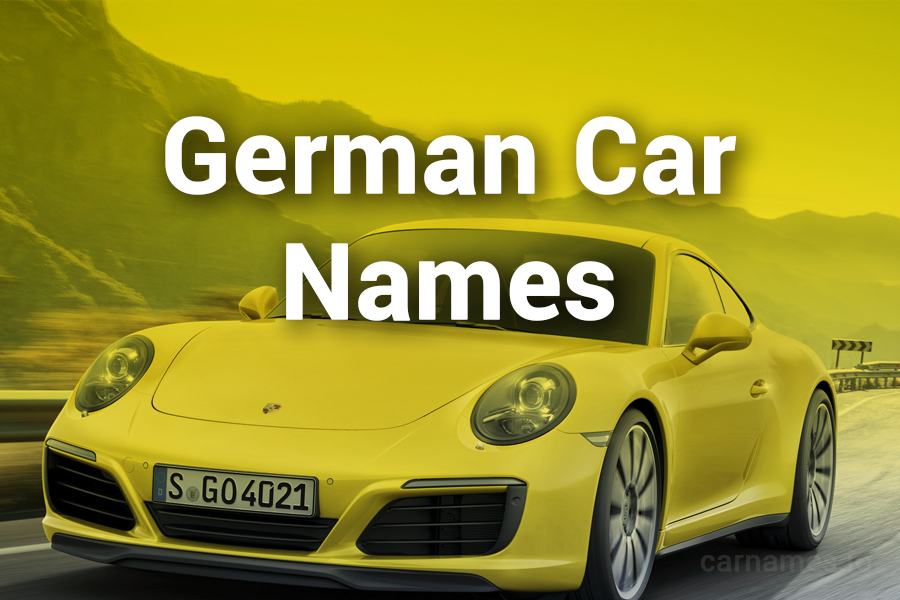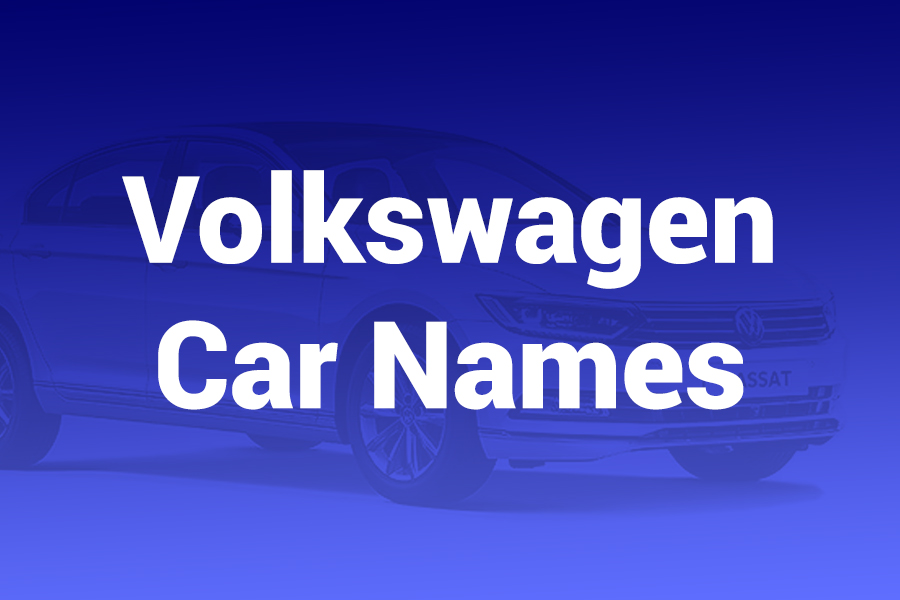
German car names evoke a legacy of precision engineering, iconic design, and a passion for performance that has spanned decades. In this comprehensive exploration, we journey through eras, from vintage classics to modern innovations, highlighting over 320 authentic and meaningful German car names. Prepare to immerse yourself in a world where technical excellence and aesthetic beauty meet on the open road.
The Legacy of German Automotive Excellence
The history of German automobiles is as rich and varied as the country’s cultural heritage. From the early days of engineering marvels and handcrafted vehicles to today’s high-performance machines that dominate international motorsports, every name tells a story of innovation and mastery. German automotive manufacturers have consistently pushed boundaries, setting industry standards with groundbreaking designs and performance enhancements. In this article, we will carefully examine a multitude of model names celebrated by enthusiasts worldwide, each representing a milestone in technological advancement. Every era of German automotive history has contributed distinct identities that resonate with elegance, performance, and sophistication. As you read on, you will rediscover classic names that conjure memories of post-war resilience, and new-age models that embody futuristic visions combined with impeccable craftsmanship.
Many of these vehicles are recognized not only for their engineering brilliance but also for how they have shaped cultural perceptions. They have graced both racing circuits and family roads, merging speed with practicality. Their names evoke images of streamlined beauty, high-speed performance, and the dependable quality that German engineering is known for. In this expansive guide, we have meticulously organized the names into themed sections that reflect different chapters in the evolution of German motoring. Whether you are a long-time aficionado or a newcomer intrigued by these remarkable machines, the following comprehensive catalogue awaits your exploration.
Exploring Renowned Model Families
German car manufacturers have introduced models that continue to inspire the automotive world. In each list below, real and historically meaningful model names are presented, highlighting the diverse spectrum of German automotive excellence. We begin with flagship models that have set the pace for performance, luxury, and innovation in the automotive industry. As you progress through these carefully categorized lists, the evolution from graceful sedans to dynamic sports cars, and from compact city cars to powerful utility vehicles, becomes evident. The names themselves are symbols of innovation and provide a glimpse into the relentless pursuit of perfection that underpins German automotive design.
Models by Manufacturer
- Audi 50
- Audi 80
- Audi 90
- Audi 100
- Audi 200
- Audi A1
- Audi A2
- Audi A3
- Audi A4
- Audi A5
- Audi A6
- Audi A7
- Audi A8
- Audi Q2
- Audi Q3
- Audi Q5
- Audi Q7
- Audi Q8
- Audi TT
- Audi R8
- Audi S1
- Audi S3
- Audi S4
- Audi S5
- Audi RS 3
- Audi RS 4
- Audi RS 5
Transitioning from Audi to BMW, a similar passion and transformative design philosophy shine through. BMW’s numerical series has become synonymous with luxury and sporty performance. Their model lineup is both diverse and detailed, appealing to a broad audience from urban drivers to high-performance enthusiasts.
- BMW 1 Series
- BMW 2 Series
- BMW 3 Series
- BMW 4 Series
- BMW 5 Series
- BMW 6 Series
- BMW 7 Series
- BMW 8 Series
- BMW X1
- BMW X2
- BMW X3
- BMW X4
- BMW X5
- BMW X6
- BMW X7
- BMW Z3
- BMW Z4
- BMW Z8
- BMW i3
- BMW i8
- BMW M1
- BMW M2
- BMW M3
- BMW M4
- BMW M5
- BMW M6
- BMW M8
Mercedes-Benz, a stalwart of luxury and safety, has given us timeless models that continue to embody elegance and performance. Their classes, ranging from compact luxury to executive sedans and rugged off-roaders, create a legacy that spans numerous generations.
- Mercedes A-Class
- Mercedes B-Class
- Mercedes C-Class
- Mercedes E-Class
- Mercedes S-Class
- Mercedes CLA
- Mercedes CLS
- Mercedes GLA
- Mercedes GLC
- Mercedes GLE
- Mercedes GLS
- Mercedes G-Class
- Mercedes SL
- Mercedes SLC
- Mercedes AMG GT
- Mercedes AMG C 63
- Mercedes AMG E 63
- Mercedes AMG S 65
- Mercedes-Maybach S600
- Mercedes-Maybach S650
- Mercedes V-Class
- Mercedes R-Class
Porsche, renowned for blending performance with luxury, has become an automotive icon on race tracks and roadways alike. Their models often serve as benchmarks in the sports car segment, where performance metrics and design language combine in a harmonious balance.
- Porsche 356
- Porsche 911
- Porsche 912
- Porsche 914
- Porsche 924
- Porsche 928
- Porsche 944
- Porsche 968
- Porsche 718 Boxster
- Porsche 718 Cayman
- Porsche Panamera
- Porsche Macan
- Porsche Cayenne
- Porsche Taycan
- Porsche 550 Spyder
- Porsche Carrera GT
- Porsche 959
Volkswagen’s expansive range covers vehicles that have become household names. The company’s commitment to innovation, quality, and versatility is evident in this lineup, which balances tradition with modern design philosophies.
- Volkswagen Golf
- Volkswagen Polo
- Volkswagen Passat
- Volkswagen Jetta
- Volkswagen Touareg
- Volkswagen Tiguan
- Volkswagen Arteon
- Volkswagen Scirocco
- Volkswagen Beetle
- Volkswagen Sharan
- Volkswagen Phaeton
- Volkswagen Touran
- Volkswagen Amarok
- Volkswagen New Beetle
- Volkswagen Fox
- Volkswagen Up
- Volkswagen T-Roc
- Volkswagen T-Cross
- Volkswagen CC
- Volkswagen e-Golf
- Volkswagen ID.3
- Volkswagen ID.4
Opel too has a storied history filled with innovative and forward-thinking vehicle models. Their naming philosophy emphasizes practicality and performance, appearing in both compact and family-oriented formats that have resonated well with drivers throughout Europe.
- Opel Astra
- Opel Corsa
- Opel Insignia
- Opel Zafira
- Opel Mokka
- Opel Adam
- Opel Crossland
- Opel Grandland
- Opel Meriva
- Opel Movano
- Opel Vivaro
- Opel Combo
- Opel Kadett
- Opel GT
- Opel Rekord
- Opel Admiral
- Opel Kapitän
Vintage Classics and Their Enduring Influence
No discussion about German car names is complete without paying homage to the vintage classics that helped shape the auto industry. These names bring to mind a time when every automobile was a work of art and engineering was a noble pursuit. Iconic names from Trabant, Wartburg, DKW, NSU, Horch, Adler, Borgward, Wanderer, Smart, and MAN have left a lasting imprint on automotive history. Their designs and technological innovations laid the groundwork for many advancements we celebrate today.
In the post-war era, names like Trabant 601 and NSU Ro 80 became synonymous with the spirit of resilience and ingenuity, capturing the imagination of an entire generation. These vehicles were not only practical but also carried an aesthetic that set them apart from their contemporaries. Enthusiasts continue to cherish these models as symbols of a bygone era where craftsmanship and design were paramount. Below is a detailed compilation of these vintage icons, each with its unique backstory and influence on the automotive world.
Vintage German Car Names
- Trabant 500
- Trabant 600
- Trabant 601
- Trabant 1.1
- Trabant 1.3
- Trabant 1.5
- Wartburg 311
- Wartburg 353
- Wartburg 1.3
- Wartburg 1.5
- DKW F89
- DKW F91
- DKW Meisterklasse
- DKW Monza
- DKW Schnell
- NSU Prinz
- NSU Ro 80
- NSU Wankel Spyder
- NSU 1000
- NSU 1200
- NSU 1500
- Horch 830
- Horch 853
- Horch 901
- Horch 107
- Horch 108
- Horch 904
- Adler Standard 6
- Adler Trumpf
- Adler Primus
- Adler Pionier
- Borgward Isabella
- Borgward Hansa 1500
- Borgward Arabella
- Borgward Eva 150
- Borgward B 1000
- Borgward Mantis
- Wanderer W25
- Wanderer W50
- Wanderer W70
- Wanderer W90
- Smart ForTwo
- Smart ForFour
- Smart Roadster
- Smart Fortwo Electric Drive
- MAN TGX
- MAN TGS
- MAN TGL
- MAN TGM
Futuristic Visions and Concept Car Innovations
German manufacturers have long been pioneers in automotive innovation, even when it comes to conceptual vehicles that hint at the future of driving. Cutting-edge designs and eco-friendly concepts characterize some of the most creative projects ever undertaken by these engineering giants. In the realm of concept cars, names like the Audi AI:ME and the BMW i Vision Circular have captured imaginations and defined futuristic aesthetics. These vehicles, although not always destined for production, serve as testing grounds for new technologies and design languages. They represent the leap from tradition into the electrified, autonomous era of tomorrow.
The following list is a curated selection of concept car names that have challenged conventional norms and highlighted the ingenuity of German automotive design. Each name conveys not just a design aesthetic, but also a philosophy of innovation that continues to inspire designers and engineers around the globe.
Concept and Vision Models
- Audi AI:ME
- Audi AI Racing
- Audi Quattron
- Audi Skysphere
- BMW Vision Next
- BMW i Vision Circular
- BMW M Vision Dynamics
- Mercedes F 015
- Mercedes Vision EQXX
- Mercedes Vision Urbanetic
- Mercedes Concept EQ Silver Arrow
- Porsche Mission E
- Porsche Panamera Sport Turismo Concept
- Porsche Carrera Concept
- Volkswagen I.D. Buzz
- Volkswagen I.D. Crozz
- Volkswagen I.D. Vizzion
- Volkswagen I.D. Life
- Opel GTC
- Opel Monza Concept
- Opel Adam Rocks Concept
- Smart Vision
- Smart EQ ForTwo
- Smart EQ ForFour Concept
Expanding the Catalogue: Historical Variants and Special Editions
The evolution of German car names is punctuated with special editions and historical variants that have become legends in their own right. Beyond the standard models, many manufacturers have released unique iterations that celebrate milestones in technology, design, or performance. For instance, the heritage of Mercedes-Benz not only lies in its classic C-Class or S-Class sedans but also in exclusive editions like the 190 SL and the 300SEL that underscored a new era of luxury and style. Similarly, BMW’s 2002 and 3.0 CSL remain coveted by collectors for their timeless design and raw performance. Such special models continue to influence modern automobile design while reminding enthusiasts of an era defined by craftsmanship and distinctive style.
Below is a selection of historical variants and special editions that have garnered admiration from collectors and casual car lovers alike. These names are etched into the annals of automotive history and continue to serve as reference points for quality, heritage, and innovative spirit.
Historical and Special Edition Names
- Maybach 57
- Maybach 62
- Maybach Landaulet
- Mercedes 190
- Mercedes 190 SL
- Mercedes 300
- Mercedes 300 E
- Mercedes 300 S
- Mercedes 280
- Mercedes 280 SL
- Mercedes 300 SEL
- Mercedes 500 SEC
- Mercedes 600
- Mercedes 700
- Mercedes 600 Pullman
- BMW 2002
- BMW 3.0 CSL
- BMW 2000
- BMW 320i
- BMW 323i
- BMW 325i
- BMW 330i
- BMW 535i
- BMW 750i
- BMW 850CSi
- Audi Quattro
- Audi Sport Quattro
- Audi Cabriolet
- Audi S6
- Audi S8
- Volkswagen Type 2
- Volkswagen Type 3
- Volkswagen Type 4
- Volkswagen Karmann Ghia
- NSU Prinz 4
- NSU Prinz 6
Performance, Tuning, and High-Performance Editions
Modern automotive enthusiasts are often captivated by the high-performance variants and tuned editions of traditional models. German manufacturers have excelled in creating performance sub-brands and special tuned editions under imprints like BMW M, Mercedes-AMG, and others. These names represent not only the pinnacle of speed and handling, but also the advanced integration of technology and design. They combine racing prowess with road safety to offer vehicles that are as striking in appearance as they are commanding on the track. The following selection includes performance modifications and tuned variants that celebrate raw power and precision engineering.
Performance and Special Tuned Editions
- Porsche 911 Turbo
- Porsche 911 Carrera
- Porsche 911 GT3
- Porsche 911 GT2
- Porsche 911 Targa
- Porsche 911 Speedster
- BMW M850i
- AMG A45
- AMG CLA 45
- AMG GLE 63 S
- AMG GT R
- AMG GT Black Series
- Volkswagen Golf R
- Volkswagen Golf GTI
- Volkswagen Golf GTD
- Opel Manta
- Audi e-tron GT
- Audi Q4 e-tron
- Audi Q4 Sportback e-tron
- BMW i4
- BMW iX
- Mercedes EQC
- Mercedes EQS
- Mercedes EQA
- Volkswagen ID.5
- Smart EQ Roadster
- Audi RS Q3
- Audi RS Q8
- BMW M4 GTS
- BMW M3 CSL
- AMG GLE 53
- Porsche 911 Carrera S
- Porsche 911 Turbo S
- Porsche 911 GT3 RS
- Volkswagen Golf Alltrack
- Opel Omega
- Opel Senator
- Opel Vectra
- Opel Signum
- Mercedes GLE Coupe
- Mercedes CLS Shooting Brake
- Mercedes 500 E
- Mercedes SLS AMG
- BMW Gran Turismo
- Audi Sport Quattro S1 E2
- Audi Sportback
- Mercedes SLR McLaren
- Volkswagen Iltis
- BMW 2002 Turbo
- BMW M Coupe
- Mercedes-Benz 300SL
- Porsche 930
- Volkswagen California
- BMW Z1
- Porsche 964
- Porsche 993
- Porsche 997
- Porsche 991
- Mercedes-Benz CL-Class
- Mercedes-Benz SLK-Class
- Volkswagen Polo GTI
- Audi RS Q8
- BMW X7 M
- Volkswagen Touareg V6
- Opel Insignia OPC
Looking Ahead: Electric Mobility and Future Classics
As the automotive world shifts towards electrification and sustainable mobility, German engineers are at the forefront of this revolution. Many of the names we have cherished for decades now get a modern, eco-friendly twist. Electric mobility introduces updated model names that are already making an impact in the global market, symbolizing a bold step into the future. These vehicles not only offer quiet, efficient performance but also retain the visual and technical cues that make German cars legendary. With a commitment to emission-free technology and smart connectivity, the new era of electric German automobiles stands as a testament to their enduring legacy while simultaneously charting a course for innovation and progress.
This section gathers the electric variants and future-oriented models that maintain the classic German spirit while embracing modern technology. Whether you’re intrigued by Audi’s pioneering e-tron models, BMW’s evolving electric lineup, or Mercedes’ expanding EQ range, these vehicles signal an exciting future where tradition meets cutting-edge innovation. The names themselves evoke progress and sustainability, making them benchmarks for what tomorrow’s automotive landscape can achieve.
Electric and Future-Focused Models
- BMW XM
- Mercedes EQB
- Audi Aicon
- Porsche 992
- Volkswagen ID. Buzz Cargo
- Opel Corsa OPC
- Smart ForFour Electric Drive
- Mercedes-Maybach GLS
- BMW 4.0 CSL
- Audi Vantage
In-Depth Analysis: Design, Performance, and Technological Innovation
German automobile names are much more than labels for transportation; they are symbols of a remarkable engineering tradition that has continuously evolved through relentless innovation. In every era, designers and engineers have infused each model with distinctive characteristics—be it state-of-the-art technology, performance-oriented engineering, or timeless design. These attributes have contributed to the global recognition of brands such as Audi, BMW, Mercedes-Benz, Porsche, Volkswagen, and Opel.
Historically, the focus was on mechanical sophistication and robust construction. Today’s models, while still upholding these values, incorporate cutting-edge electronics, lightweight materials, and sustainable technologies. German cars have not only dominated racetracks but have also been at the forefront of safety innovations, luxury comfort, and environmental awareness. These vehicles symbolize the union of art and science, delivering dynamic performance while remaining practical for everyday use.
Numerous studies and expert reviews have noted that a vehicle’s name itself often plays an integral role in consumer perception. A name like “Porsche Carrera GT” instantly conveys exclusivity and dynamic performance, while “Mercedes S-Class” exudes sophistication and class. Similarly, the introduction of electric sub-brands has ensured that these traditional names stand alongside futuristic visions, making these brands timeless. The interplay between heritage and modernity in these names reinforces a powerful narrative: German cars are not simply built, they are crafted with passion, innovation, and a deep understanding of the art of motoring.
Car manufacturers continue to build on this heritage, with research and development focusing on sustainability and autonomous driving. The integration of smart technologies into classic models—without compromising core values such as performance and durability—shows the adaptability and forward-thinking nature of German engineering. This in-depth analysis pays tribute to a lineage of models and variants, each offering unique insights into the evolution of the modern automobile, and it stresses the ongoing commitment to pushing the boundaries of innovation.
A Visual Overview Through Tables
Below is a responsive table that organizes a curated selection of German car names alongside brief descriptions that capture the essence of each model family. The design of the table is intended to provide a visually engaging and interactive experience, ensuring that readers can appreciate the historical depth and stylistic diversity embedded within these automotive masterpieces.
| Model Name | Description |
|---|---|
| Audi A4 | A flagship model known for its balance of design and performance. |
| BMW 3 Series | Renowned for sporty dynamics and luxurious detailing. |
| Mercedes S-Class | The pinnacle of luxury and advanced technology. |
| Porsche 911 | An icon in sports car performance and design legacy. |
| Volkswagen Golf | A versatile compact car appreciated worldwide. |
| Opel Astra | A model known for practicality and innovative design. |
The Multifaceted World of German Car Names
Diving deeper into the multifaceted world of German car names, it becomes clear that these designations serve several functions. They offer an easy reference for consumers, create brand identity, and even communicate a promise of quality and durability. Historically, the naming process has been a reflection of the values held by manufacturers, linking modern vehicles to their storied past. Over time, these names have evolved to not only capture technical ingenuity but also evoke emotion and status. It is this blend of form, function, and feeling that elevates a mere model name to an enduring automotive legend.
Collectors, historians, and casual enthusiasts alike acknowledge that a name carries with it the aspirations, innovations, and sometimes even the struggles of an era. Some names evoke the romance of the post-war reconstruction, while others mirror the ambition of the digital age. This dynamic interplay of historical context and modern innovation continues to influence trends and consumer expectations. With ongoing advancements in technology and design, new editions, and reborn classics, the lexicon of German car names remains both expansive and endlessly fascinating.
Enthusiasts appreciate the subtle nuances behind each name. For example, a BMW’s “M” designation is not merely an alphabetic marker—it symbolizes a commitment to performance engineering and motorsport heritage. Likewise, Audi’s “RS” models aggregate high-performance features into a package that is both visually striking and exhilarating to drive. The profound respect for these traditional markers is evident in how they are adapted for modern electric models or special editions that celebrate significant milestones. As we witness a fusion of classic mechanics and modern electronics, these names continue to be a critical part of the dialogue between past and future generations of drivers.
Furthermore, the influence of German car names extends well beyond the automotive industry. They have inspired art, literature, and even fashion, permeating popular culture as symbols of ingenuity and progressive design. Many of these names have become part of the everyday lexicon, representing the pinnacle of quality and performance. In exhibitions and museums around the world, vintage and modern German vehicles are celebrated not just as modes of transport, but as cultural icons that tell a broader story about human ambition and the drive for innovation.
Conclusion
German car names are a tribute to an enduring legacy of innovation, performance, and design mastery that spans generations. They encapsulate the dreams and technical prowess of an industry that has continuously pushed the envelope, blending classic heritage with forward-thinking technology. This carefully curated guide, with over 320 authentic names, celebrates the heritage, cultural influence, and future promise of German motoring. Whether by tradition or through futuristic ambitions, these names continue to inspire and captivate enthusiasts around the globe.






